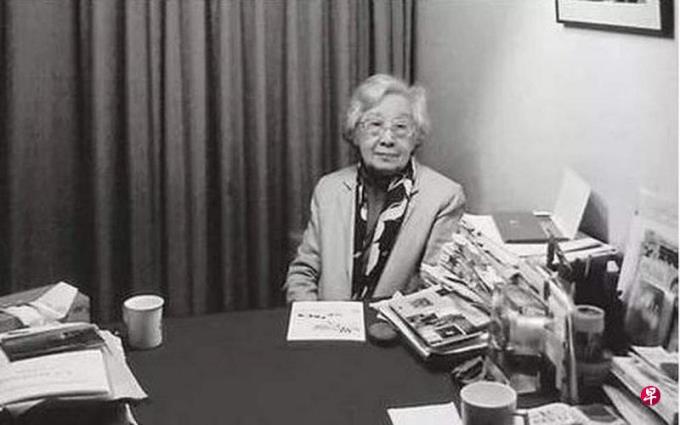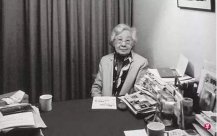
At the beginning of this century, Mr. Qi Bangyuan, the author Qi Bangyuan, who has a sensation on both sides of the Taiwan Strait and the popular Chinese world, has died in Taipei recently. She not only lived for a century, but also changed her personal experience and family changes in a century.The emotional way is recorded and moved countless Chinese readers.
The 20th century is an era full of great changes for the Chinese.In just a century in the long history of history, the ultimate collapse of the imperial system, the turbulent age of the warlord cutting, the tragic civil war of the Kuomintang, the great anti -Japanese war, the Great Leap Forward and the Great Famine, the Cultural Revolution, the Central Cultural Revolution, the Cultural Revolution, the Cultural Revolution, the Cultural Revolution in 1949The construction of the United States, the process of reform and opening up, the process of relief in Taiwan, the process of democratization, and the return of Hong Kong and Macao.These major political and historical events have not only changed China's process, determined the fate of life and death of hundreds of millions of people, but also had a profound impact on the global political pattern.Qi Bangyuan, born in the mainland, belongs to the war -defective camp in the KMT and the Communist Party of China, and fled to Burchia intellectuals in Taiwan. In his personal description of family history in his later years, he reviewed this century -old vicissitudes that cross the three generations of cross -strait three generations.
This book is the pursuit of the 80 -year -old man. Of course, it is impossible to compose historical facts. The common description distortion in oral history is inevitable in this book.As expressed in the book, Mr. Qi has no political ambitions, but only from the perspective of a weak woman watching, to look at the souls of the hearts of tens of millions of people who are dying and fell as they are, but they have long been buried in the ruthless historical waves.history.
Chinese people have a lot of excellent cultural quality, but reflection and self -introspection are by no means the director. We are always taboo for the sins and faults committed in the past.The weak woman wrapped in the great era, with personal perceptual experience, to glimpse the extremely suffering national journey.According to the details of the book, we finally know that the number of casualties in the war of Lengbing and the political struggle has the pain of cutting and tears with blood and tears in the old man and the old man.We in the peace era, the cruelty of unimaginable imagination, was sympathetized by this work into a unable to express in ordinary textbooks.Many times, academic research and historical records are not as long and deeper than literature. Even the century that has long been deliberately forgotten.The accurate data we obtained through historical research is often better than the intuitive feelings in literary works.Literature can not only heal the soul, but also capture the collective memory of the times.
Giantli River is the old name of Liaonhe River in Northeast China, and is the mother of the author of the author's hometown in Liaoning.In the book, when the author recalled the most difficulties in the 1943 Chinese War of Resistance Against Japan, they fled from Chongqing to Jiading, western Sichuan. When they boarded the ship, the rain was raining.Boat, his father left after sending farewell.The author's feelings at the time were "what kind of situation I was myself, I just remembered the crying and shocked crying ... Looking at (father) went ashore and went ashore in the rain curtain." After boarding the boat, I touched again and touched again.When I went to the enemy aircraft, I was scattered with the second sister. A kind of "vast river, where am I?"
In the great era, personal feelings are always easily destroyed.Qi Bangyuan described her pure feelings with Zhang Dafei, a flying tiger player.The latter was taken care of by the Qi family and also had a love for her, but considering that she could only let go of her fate, she could only let it go. Later, she died shortly before the victory of the Anti -Japanese War.In the giant rivers, the author recorded Zhang Dafei to give her brother Qi Zhenyi, but actually expressed a good letter to Qi Bangyuan's emotions: "When you received this letter, I was dead. Eight years ago, I was admitted to the aerial school with me eight years ago.All seven people left three days ago, and the last friend did not return to the night. I know that the next time it is my turn.... I will say that I will die, how can I say 'I love you'?We should thank Qi Bangyuan for their records, otherwise this world's memory of Martyr Zhang Dafei can only be one of the countless names of the Nanjing Anti -Japanese Airlines Cemetery.Moreover, this cemetery was destroyed by the Red Guards as early as 1966, and the bones were scattered, leaving only acupoints.
Scholars or politicians' attention to history may be more macro and rational than writers.This book tells the personal family story, so that the family's warehouse and the corner of the house are leaving, and the losses and migration of the tens of millions of people in that cruel era; love and sacrifice; survival and destruction; Confusion and helplessness; obedience and resistance; humility and nobleness of human nature, and the complexity of society, all of which are reproduced among her low -sinking and injuries.
Anyone's personal destiny is always closely connected to the Great Age, and the direction of the Great Age is also controlled by the collective unconsciousness of the antim himself and other ants.Today, Qi Bangyuan has transformed into the dusty smoke, but the century that passed away has not far, and each of us has flowed in his life.The times are rolling forward, only the warmth of true feelings and human nature is always long and long; although literature is slightly weak, it is often possible to pull away the truth of the fog and directly understand the truth of the world.
The author is a local literary and historical enthusiast and religious researcher




